In addition to teaching and scholarship, Elon Law faculty members enrich public understanding of law and contribute to the legal profession through a variety of professional service and public commentary. Some of the faculty’s contributions during the 2012-13 academic year are featured here.
 David M. Crowe delivers BB&T Heritage Lecture at Barton College
David M. Crowe delivers BB&T Heritage Lecture at Barton College
Professor of legal history David M. Crowe presented the 2013 BB&T Heritage Lecture at Barton College. In his address, Crowe examined the role of the United States in the growing body of international humanitarian law, discussing examples from the Civil War-era Lieber Code to the Nuremberg and Tokyo trials in the aftermath of World War II. Crowe also discussed more modern issues in international humanitarian law, including the current military commission trials in Guantanamo, Cuba and the impending trial of Khalid Sheik Mohammed, the architect of the 9/11 attacks on the United States, and his four co-conspirators.
 Leary Davis, Faith Rivers James and Roland Smith present at leadership roundtable
Leary Davis, Faith Rivers James and Roland Smith present at leadership roundtable
On March 22, 2013, Elon Law professors Faith Rivers James, Roland Smith and founding dean and professor of law emeritus Leary Davis presented at Santa Clara University School of Law’s fifth Leadership Education Roundtable.
The Roundtable included leading academics, law school administrators, professional development experts and practicing lawyers who discussed the value of teaching leadership competencies in law school and in the profession.
Davis presented a paper titled, “Understanding Change in Legal Education and the Legal Profession.”
Rivers James, professor of law and director of Elon Law’s leadership programs, participated in a panel titled, “Building Structures for Leadership Education.”
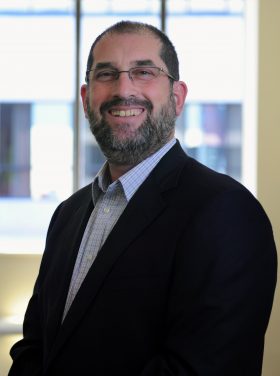
Erik Fink appointed to farm labor arbitration commission
In October 2012, associate professor of law Eric Fink was appointed the Farm Labor Organizing Committee’s (FLOC) designated member of the North Carolina Agricultural Arbitration Commission, an organization that resolves grievances between the FLOC and the North Carolina Growers Association.
Andy Haile coauthors article on e-commerce taxation
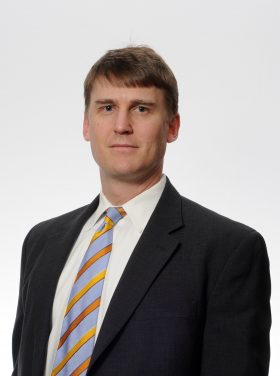 Andy Haile, associate dean for academic affairs and associate professor of law, coauthored a March 11 article in State Tax Notes examining proposed federal legislation to address restrictions on states to collect sale or use taxes on electronic commerce.
Andy Haile, associate dean for academic affairs and associate professor of law, coauthored a March 11 article in State Tax Notes examining proposed federal legislation to address restrictions on states to collect sale or use taxes on electronic commerce.
Coauthored with University of California-Berkeley School of Law Professor David Gamage and University of California-Hastings College of the Law Professor Darien Shanske, the article explains how innovations in federal law could incentivize states to simplify sales and use tax statutes and resolve concerns about states overburdening interstate commerce.
Peter Hoffman provides insight on trial advocacy nationally
Peter Hoffman, professor of law, delivered the Geoffrey Fieger Trial Practice Institute’s Seventh Annual Lecture titled, “What Do Trial Advocacy Teachers and Buggy Whip Manufacturers Have in Common?” at Michigan State University College of Law.
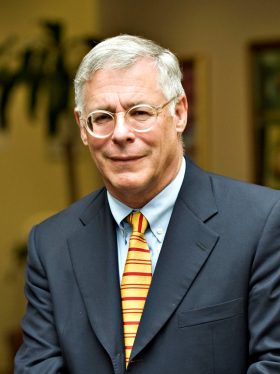 Hoffman also coauthored a National Institute for Trial Advocacy (NITA) video catalog on effective depositions, supplementing content from the top-selling book on deposition practice titled The Effective Deposition: Techniques and Strategies That Work, which he also coauthored.
Hoffman also coauthored a National Institute for Trial Advocacy (NITA) video catalog on effective depositions, supplementing content from the top-selling book on deposition practice titled The Effective Deposition: Techniques and Strategies That Work, which he also coauthored.
George Johnson delivers Bennett College Charter Day Convocation address
George R. Johnson, Jr., dean and professor of law, spoke on March 14 to commemorate the 124th anniversary of the chartering of Bennett College by the state of North Carolina, reflecting on the significance of Bennett’s contributions to American higher education. Bennett College is a small, private, historically black liberal arts college for women.
“You cannot be familiar with American higher education and not know about the towering history of Bennett College,” Johnson said. “When you think seriously about it, the notion of a Bennett College is an audacious idea. In some parts of the world it remains to this day a very radical idea that women would be educated to think, to achieve, to lead.”
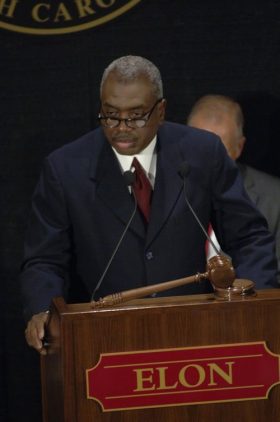 In his remarks, Johnson highlighted several significant contributions of Bennett’s alumnae to industry, public life and higher education, including Dr. Frances Jones Bonner, the first African-American physician to train and to be a faculty member at Massachusetts General Hospital, Dr. Joyce Martin Dixon, co-founder of Creative Management Technology, Inc., and Yvonne Johnson, the first African-American mayor of Greensboro, N.C.
In his remarks, Johnson highlighted several significant contributions of Bennett’s alumnae to industry, public life and higher education, including Dr. Frances Jones Bonner, the first African-American physician to train and to be a faculty member at Massachusetts General Hospital, Dr. Joyce Martin Dixon, co-founder of Creative Management Technology, Inc., and Yvonne Johnson, the first African-American mayor of Greensboro, N.C.
David Levine challenges secrecy in fracking
In 2013, associate professor of law David S. Levine coauthored a law scholars letter to the Alaska Oil & Gas Conservation Commission (AOGCC), supporting the Commission’s proposed hydraulic fracturing (fracking) regulations to require corporations to disclose trade secret information, such as chemical ingredients used in fracking activity in Alaska. Signed by ten law professors with expertise in intellectual property and trade secrecy, the letter expressed no position as to whether fracking operations should or should not take place in Alaska.
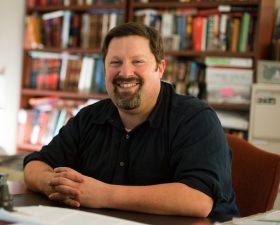 Levine has advised on similar matters in California and in North Carolina, where he was recently appointed to the N.C. Division of Energy, Mining and Land Resources Study Group on Protection of Trade Secrets and Proprietary Information.
Levine has advised on similar matters in California and in North Carolina, where he was recently appointed to the N.C. Division of Energy, Mining and Land Resources Study Group on Protection of Trade Secrets and Proprietary Information.
Tom Molony delivers annual North Carolina business law update
In 2013, Tom Molony, associate professor of law, delivered his fourth consecutive North Carolina Business Law Update at the annual meeting of the Business Law Section of the North Carolina Bar Association (NCBA). Molony’s update examined significant cases decided in the past year by North Carolina, Delaware and federal courts on topics such as corporate law, limited liability company law, securities law and commercial law.
 Additionally, Molony continued his long running “Business Law Developments” article series for members of the Business Law Section of the NCBA, summarizing key aspects of judicial decisions regarding business and commercial law.
Additionally, Molony continued his long running “Business Law Developments” article series for members of the Business Law Section of the NCBA, summarizing key aspects of judicial decisions regarding business and commercial law.
Michael Rich examines ethics of technologies to prevent crime
In December 2012, several news publications in North Carolina and Virginia published a column authored by associate professor of law Michael Rich discussing a trend toward what he called the “perfect prevention of crime,” an act achieved by deploying technologies that make crime impossible. As an example, Rich discussed technology called Driver Alcohol Detection System for Safety (DADSS), a standardized ignition interlock system that prevents a car from starting if a driver is intoxicated.
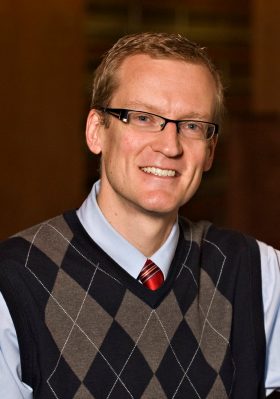 Rich argues that, while such technologies have obvious benefits, they have the potential to detract from society’s moral growth in some contexts by taking away a person’s ability to choose to obey the law.
Rich argues that, while such technologies have obvious benefits, they have the potential to detract from society’s moral growth in some contexts by taking away a person’s ability to choose to obey the law.
Catherine Wasson continues leadership in multinational legal writing association
Catherine Wasson, associate professor of law and director of the legal method and communication program, has been elected to a second term on the Board of Directors of the Association of Legal Writing Directors (ALWD).
The ALWD is an organization that supports research and scholarship in the field of legal writing. It is comprised of legal educators who are primarily responsible for designing and coordinating legal research and writing curricula in American,
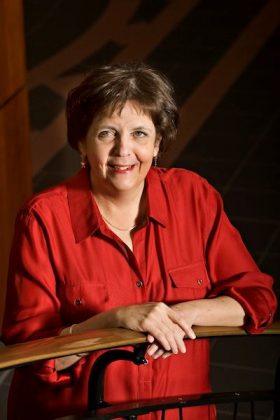 Canadian and Australian law schools. During her time with the ALWD, Wasson has advocated for position and compensatory security for legal writing professors, in addition to rigorous instruction in professional writing for law students. Wasson is the co-author of A Practical Guide to Legal Writing & Legal Method, a textbook first published in 1981, now in its fifth edition.
Canadian and Australian law schools. During her time with the ALWD, Wasson has advocated for position and compensatory security for legal writing professors, in addition to rigorous instruction in professional writing for law students. Wasson is the co-author of A Practical Guide to Legal Writing & Legal Method, a textbook first published in 1981, now in its fifth edition.
Learn more about the scholarship and service of faculty members at Elon Law.


